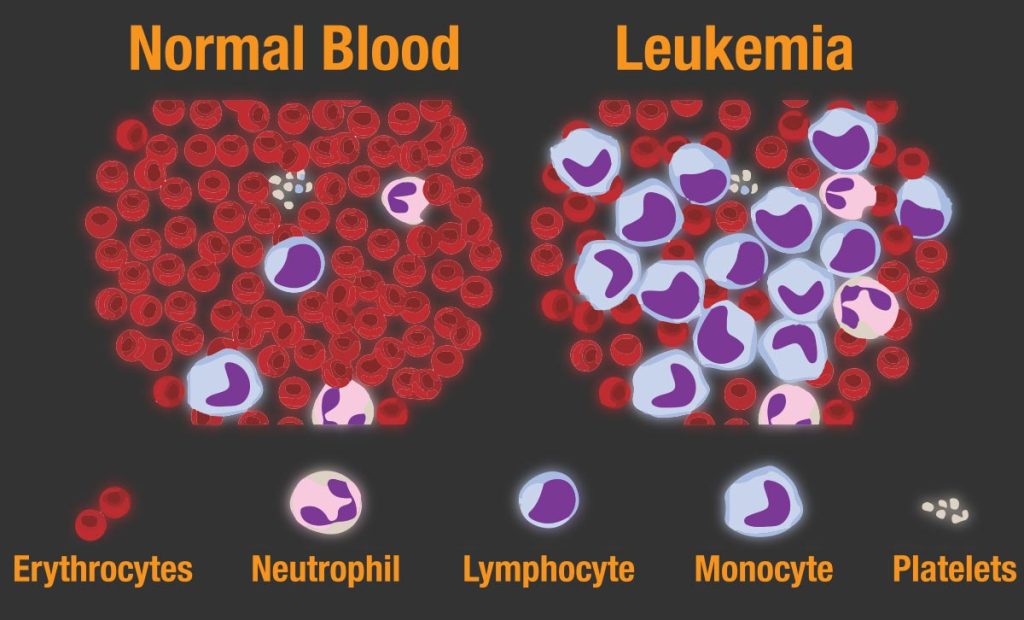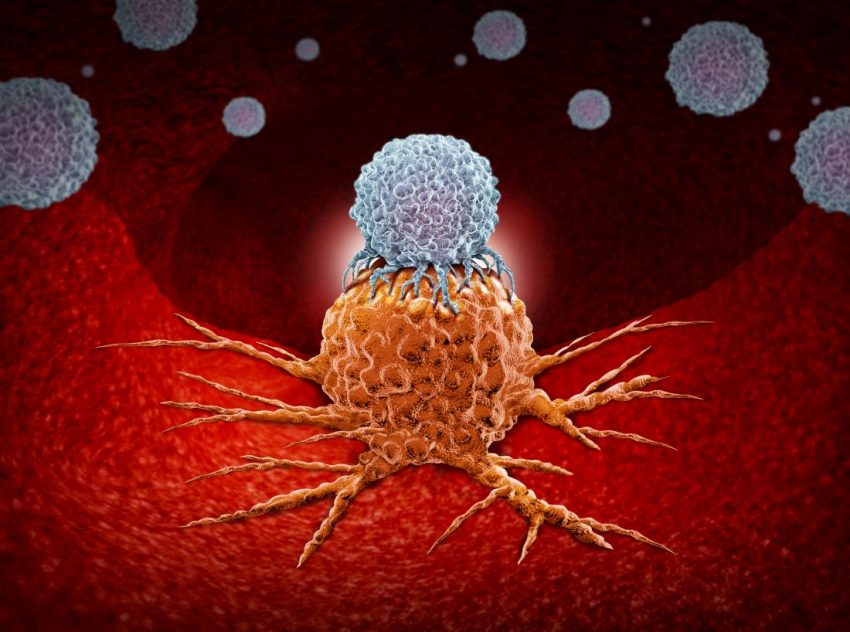Blood Cancer Symptoms:
Although each kind of Blood Cancer Symptoms and Diagnosis is unique, it might present some similar symptoms. Abnormal cell growth and multiplication in the blood or bone marrow lead to blood cancer or hematologic cancer. The normal functioning of blood cells is interrupted by cancerous cells, resulting in a variety of symptoms. The disease may have progressed before symptoms appear in some blood cancer patients. It’s possible that the symptoms could be confused with those of a severe cold or flu.
Some common blood cancer symptoms include:
- If you have coughing or chest pain, seek medical attention. Your spleen could be experiencing a buildup of abnormal blood cells, which might be the cause.
- Frequent bouts of infection. The shortage of white blood cells can be a potential cause for the inability to fight routine pathogens.
- Fever or chills. A cause is not adequate white blood cells, leading to highly frequent diseases.
- Unidentified rash, bruising, or aching. A possible cause is not enough platelets, which are the cells that help the blood clot.
- Itchy skin. Possible elements remain unknown.
- Loss of appetite or vomiting. A cause is an enlargement of abnormal blood cells in your spleen that demands your stomach.
- Night sweats. Reasonable causes remain anonymous.
- Persistent weakness and fatigue. The probable cause is not enough red blood cells (anemia).
- Shortage of breath. A potential movement is anemia.
- Swollen, clear lymph nodes in the collar, armpits, or groin. A cause is a build-up of peculiar white juice cells in your lymph glands.
Recall, these manifestations can also be compared to other conditions, but if you experience any of them closely, it’s essential to consider a healthcare professional for a comprehensive interpretation.
Blood Cancer Diagnosis and Staging:

Your blood tumor care team will keep tests to arrange the type and stage of your blood cancer. Diagnosis and staging often take effect at the same time.
Tests to diagnose blood cancer:
Tests and methods to investigate blood cancers may include:
- Blood analyses.
- Bone marrow experiments.
- Labeling experiments — CT scan, PET scan, and X-ray.
- Real exam.
- Surgical lymph node elimination (to use in staging).
Staging blood cancer:
Staging is a process that tells the advance and harshness of cancer. This allows every member of the healthcare team to know the exact type, location, and spread of the cancer. Doctors evaluate solid carcinomas (like lung or breast cancer) by measuring the size of the tumor and how the disease has spread. But blood cancer is different. Each type of blood cancer controls its own staging technique. Your doctor will tell you how to determine the stage of your blood cancer.
Blood cancer staging looks at:
- Blood cell counts, having the number of strong cells.
- The range and amount of cancer cells.
- Genetic alterations in the cancer cells.
- The behavior of cancer cells in other agencies.
- Bone pollution (with leukemia and different myeloma).
- Added to liver or spleen.
Doctors also attach a grade to non-Hodgkin lymphomas. Grading helps realize the cancer’s growth standards and combativeness.
Lymphomas can be:
- Poor grade: slow-growing or indolent.
- Transitional grade: moderate growth rate.
- Large grade: fast-growing or aggressive.
Questions to Ask Your Doctor About a Blood Cancer Analysis

If you receive a sickness diagnosis, you will possibly have many questions. Your expert and other representatives of your care company will be your best cause to learn about your special situation.
Here are some questions from the American Cancer Company you might want to ask your doctor:
- Can you do a biomarker or atomic trial for my type of blood cancer?
- What are my analysis choices?
- What blood cancer method do you propose? Why?
- How directly do I need to start management? Is “watchful expecting” an option?
- How will employment affect my work, house, and daily actions?
- How possible is my blood cancer to come back after therapy?
- Should I guess about meeting a clinical trial?
When to See a Doctor
Because many of the previous symptoms of sickness are not very limited, it can be challenging to know when to disturb. But early investigation can lead to quicker and more active treatment, so don’t stay. You should reach your professor if your blood cancer manifestations last more than a few hours and don’t increase. Some people fear “disturbing” their doctor if they only have an intense or the flu. However, your doctor would choose that you see the recommendations quickly in order to make a diagnosis.
Conclusion:
Blood cancer symptoms and diagnosis. Recall, early detection and timely preventive intervention game a significant role in enhancing treatment reactions for blood cancer sufferers. If you doubt any signs or symptoms we examined today, don’t falter to stand out to a healthcare professional.
you may also visit:
- How Is Smoke Dangerous To Human Health
- Open Ai Introduced Android Chatgpt App
- Pakistan Transformative Aims For $30-50b Investment Boost
- Cresta 50m Series: Revolutionizing Capital Sourcing for Startups
- Women Who Restarted Their Life From Scratch
- Master Catering Service & Marriage Hall in Kohiwal
- Personetics AI: Revolutionizing the Banking Industry
- Home Run Derby 2023: Date, Time and Schedule
- Mexico-based $20M Series
- Blood Cancer Symptoms and Diagnosis
- Pierce Brosnan’s Lifestyle
